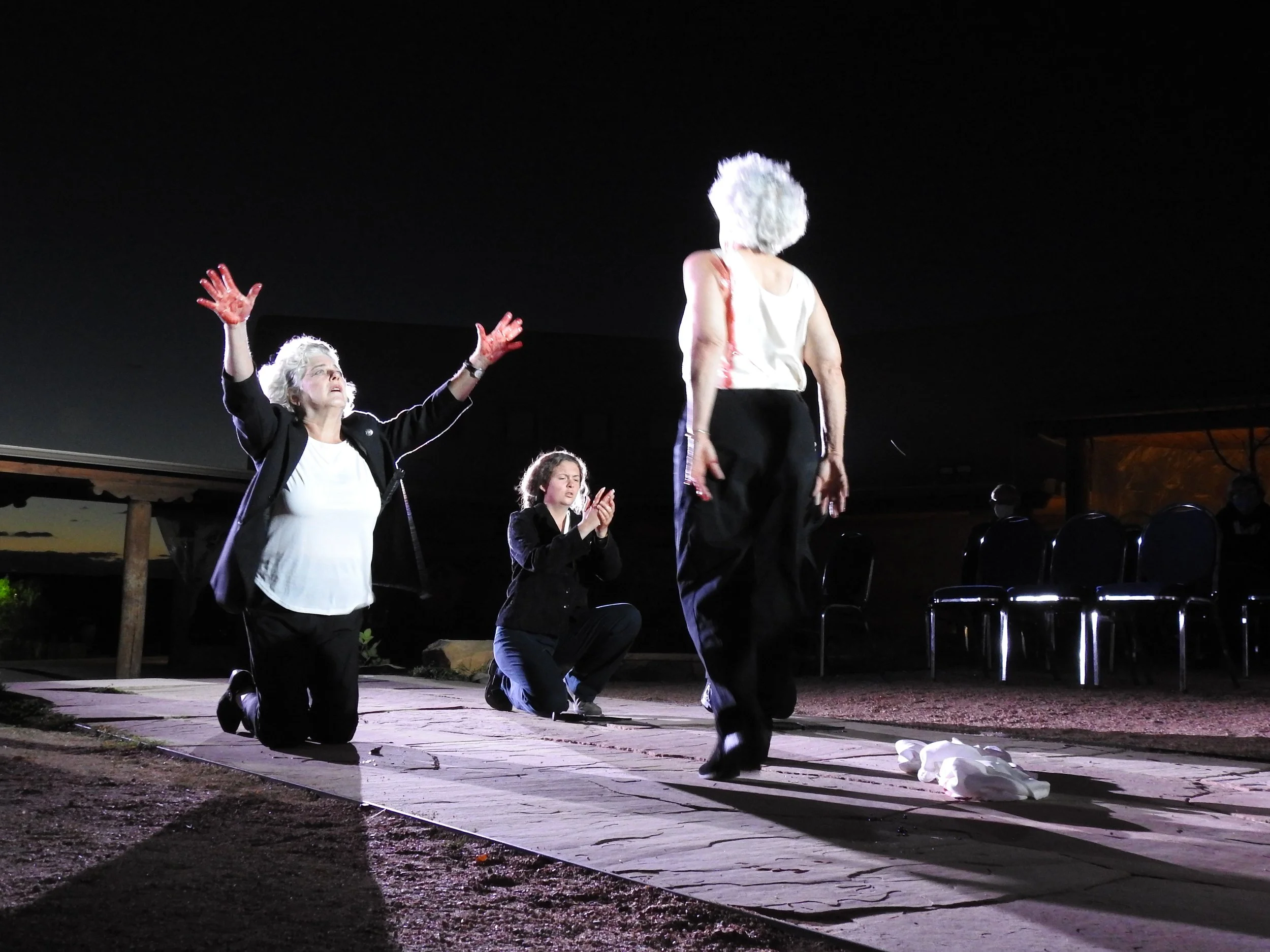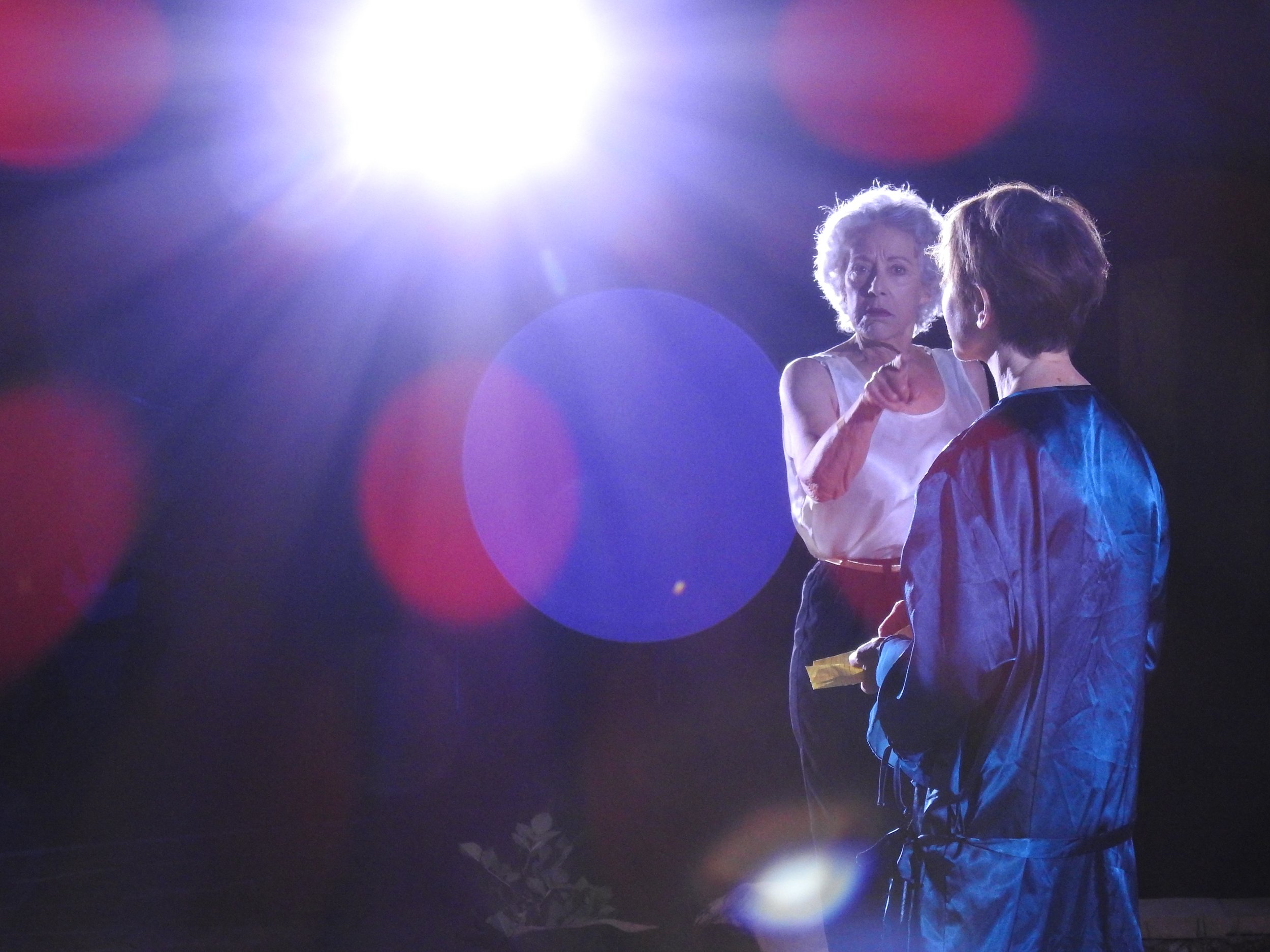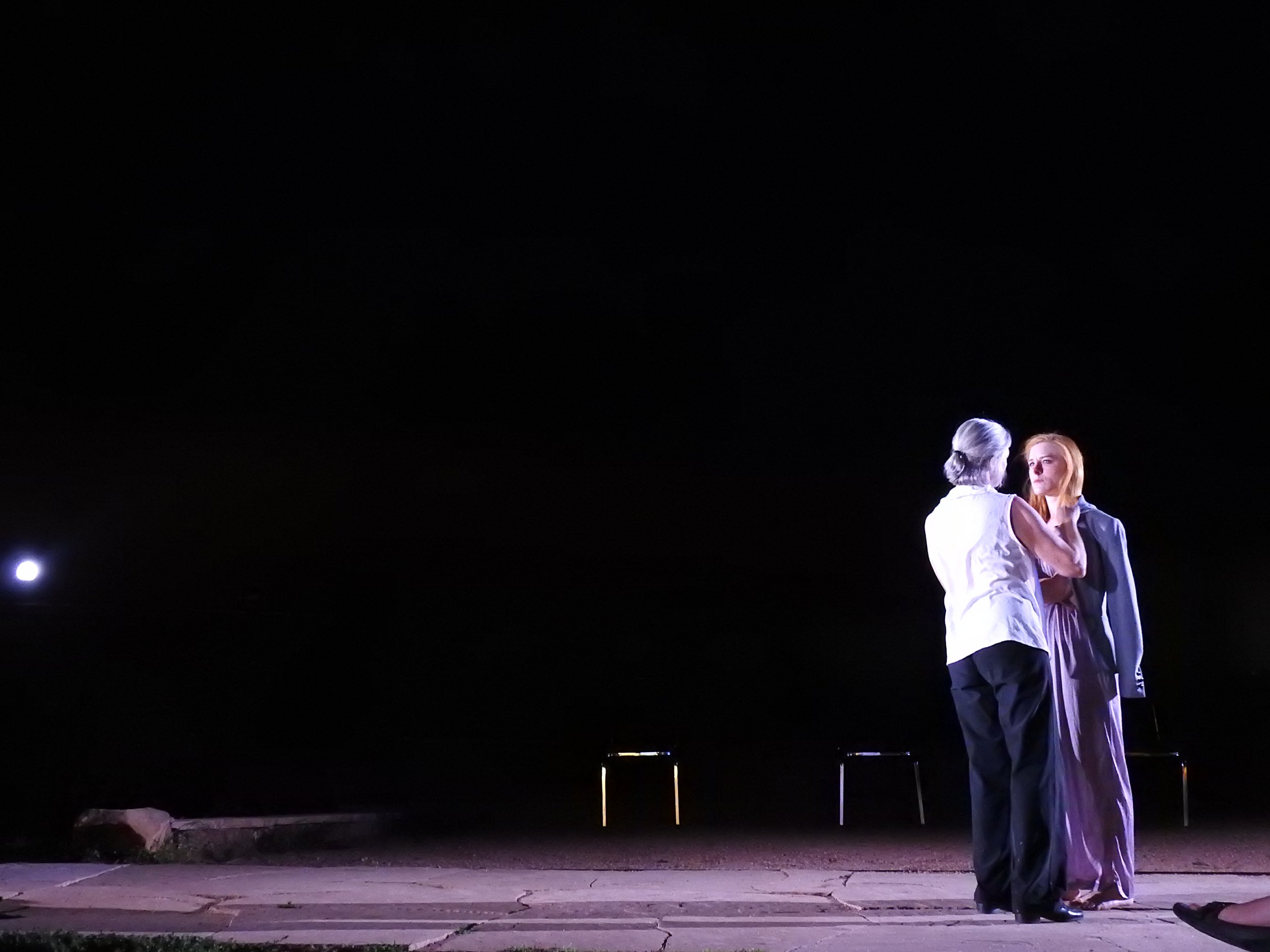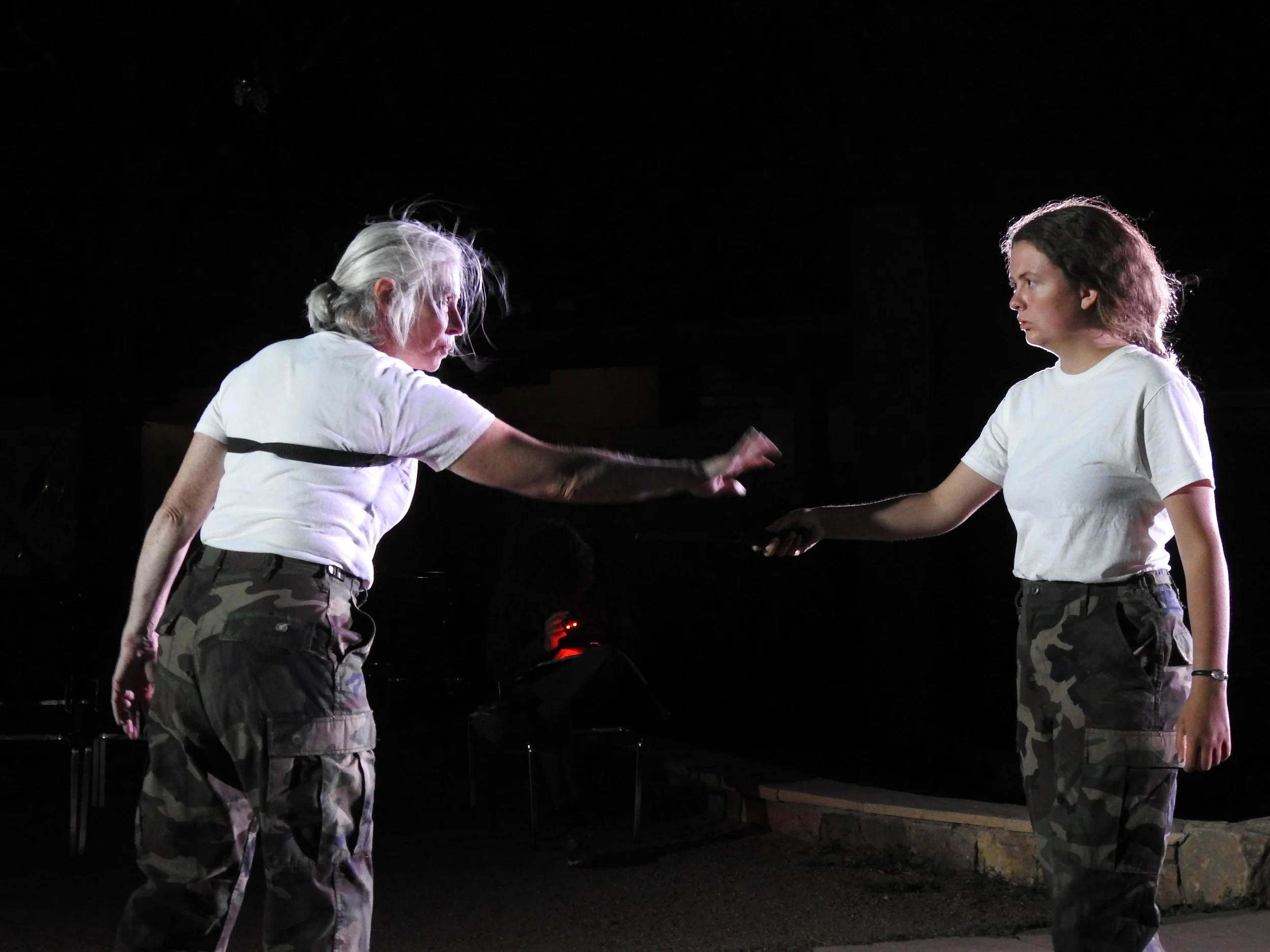
Julius Caesar • 2021
ISC Rep Season 2021: The Romans
How far would you go to secure democracy? One of Shakespeare’s most potent political thrillers, Julius Caesar tells a story of the conflict between personal motivation and political ideology, rhetoric and action, stability and violence. These tensions play out through complicated and often competitive relationships between unforgettable characters. What does it mean to fight for freedom?
The ISC Ensemble performed two of Shakespeare’s most potent political thrillers during the summer of 2021: Coriolanus and Julius Caesar. The productions were performed in repertory with a tight cast of 11 actors.
Cast
Rhoda Bodzin: Calpurnia, Servant to Octavius, Plebian
Mairi Chanel: Portia, Metellus Cimber, Cinna the Poet, Plebian
Edward Daranyi: Mark Antony, Plebian
Deborah Davis: Julius Caesar, Plebian
***Lynn Goodwin: Marcus Brutus, Plebian
Meg Hachmann: Flavius, Decius Brutus, Plebian
Ariana Karp: Mark Antony, Plebian (understudy)
Breshaun Joyner: Casca, Plebian
Alexander Lane: Murellus, Soothsayer, Octavius Caesar, Plebian
Geoffrey Pomeroy: Caius Cassius, Plebian
William Potter: Cobbler, Cicero, Lepidus, Pindarus, Plebian
Clara West: Cinna, Lucius, Plebian
***Appeared through the courtesy of Actors’ Equity Association, the Union of Professional Actors and Stage Managers in the United States.
Production Team
Ariana Karp: Director, Sound Design, & Fight Choreography
Itai Rosen: Stage Manager
Rylie Philpot: Assistant Stage Manager
Raul Daoud: COVID Safety Manager
Vince Faust: Technical Director & Set Design
Jayden Chavez: Lighting Design
Edward Daranyi, Kate Healy, Ariana Karp, and Katrin Talbot: Costume Team
Jamie Chavez: Light Board Operator
Gabriel Boston-Friedman, Ian Gonzales, Ashur Pinkerton, and Clementine West: Running Crew
Katrin Talbot: Photography and Videography
Music
Composed and performed by: Gocoo
Director’s Note • Ariana Karp
“How many ages hence
Shall this our lofty scene be acted o’er,
In states unborn and accents yet unknown?”
As he was fighting colonialism and negotiating for an independent nation, the scholar-statesman and future president of Tanzania, Julius Nyerere, translated Julius Caesar from English into Swahili late into the night. In 1937, a 21-year-old Orson Welles inaugurated his New York Mercury Theatre company with a production of Caesar as a searing antifascist thriller as Mussolini and Hitler were gaining power and support in Europe. The political potency of Julius Caesar is palpable. I am fascinated by how Shakespeare’s play has been used throughout history as both a tool of cultural imposition and as a force to fight tyranny, colonialism, and oppression. How do these dichotomies co-exist so seamlessly within one text?
Julius Caesar is a play without heroes or villains. It is a play about people struggling, and failing, to live up to their own ideals. It is a play devoted to the nuance, complication, and conflict of personal relationships and political dependencies. It portrays violence as a virus that spreads from the halls of power to the streets, and language as a tool of both persuasion and manipulation.
It has been a privilege and an honor to be in the rehearsal room again, and to work on this amazing play with this extraordinary cast and creative team. Thank you for sharing this time and space with us; it is our honor to share this story with you.
The ISC partners with iReadShakespeare and the production of Shakespeare’s play texts designed specifically for Readers, edited by Dr. Robin Williams. For more info about these Readers’ Editions, go to iReadShakespeare.org.






































